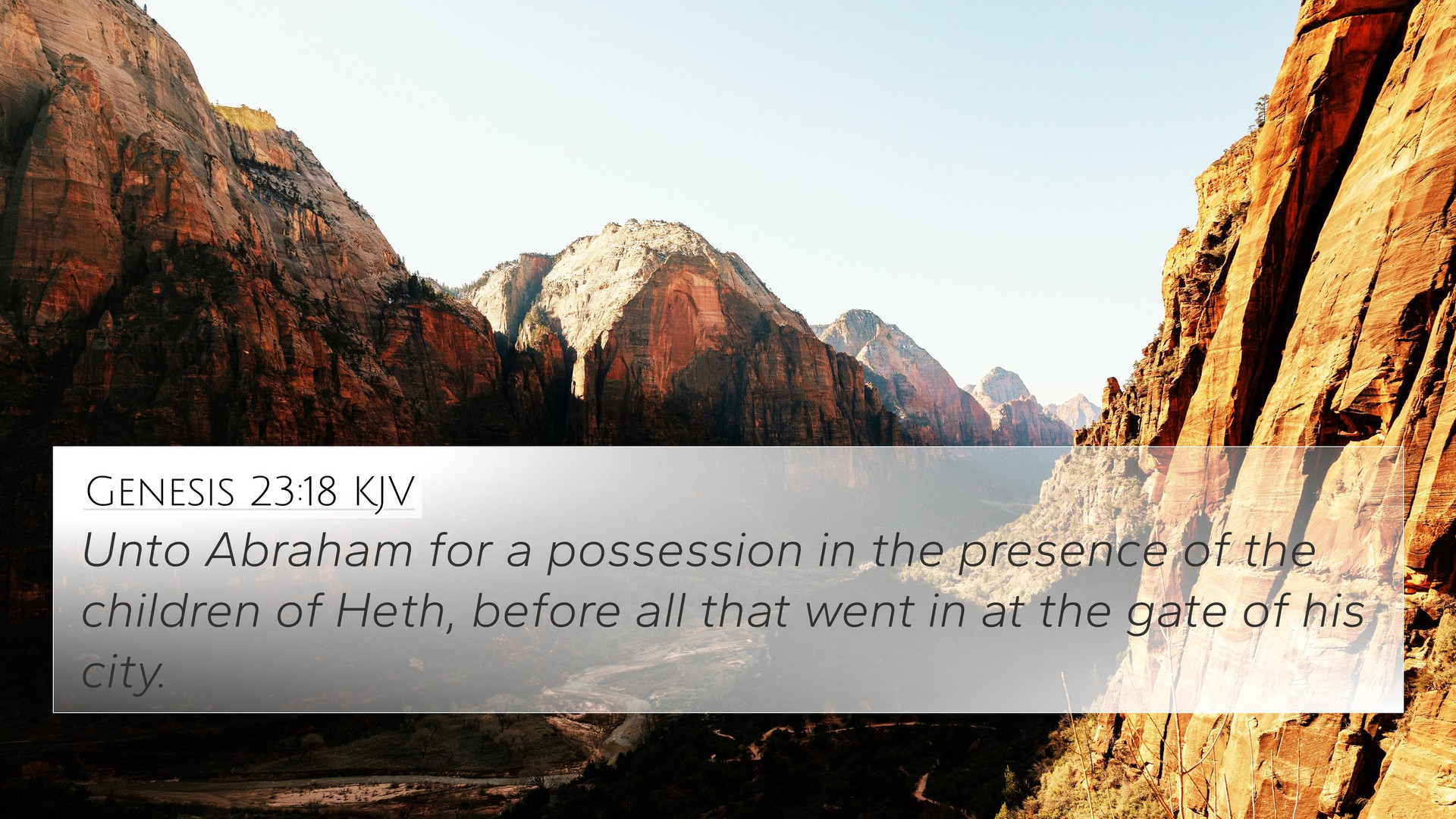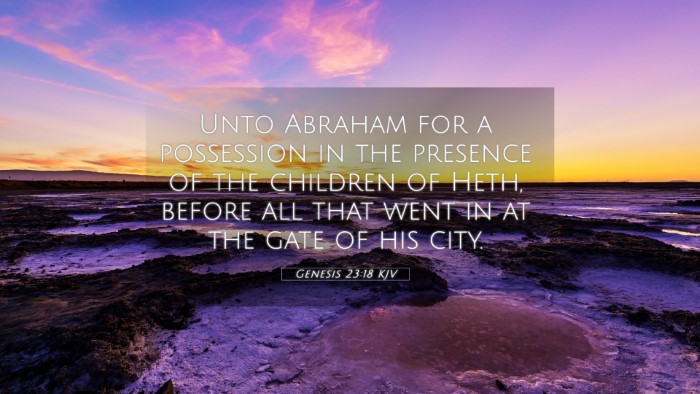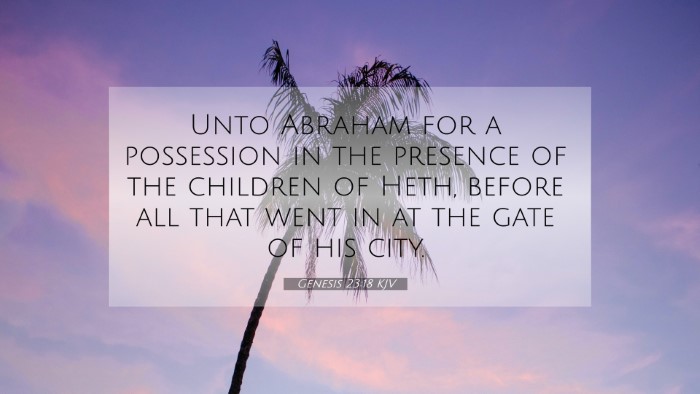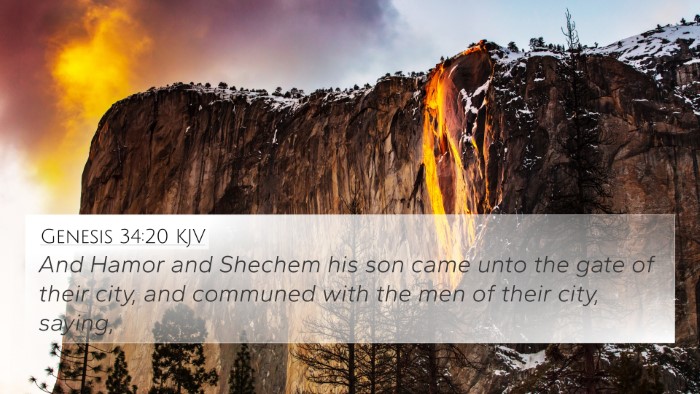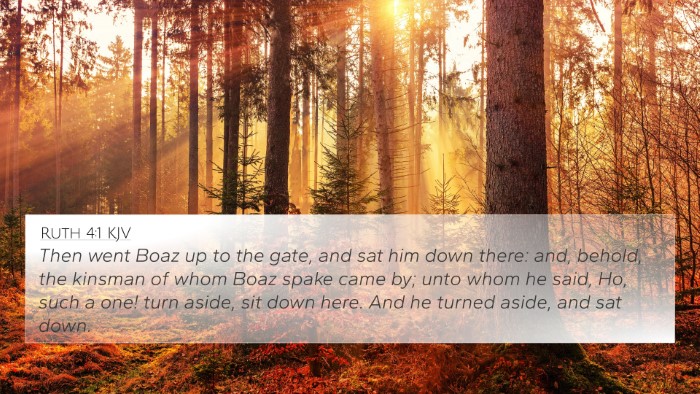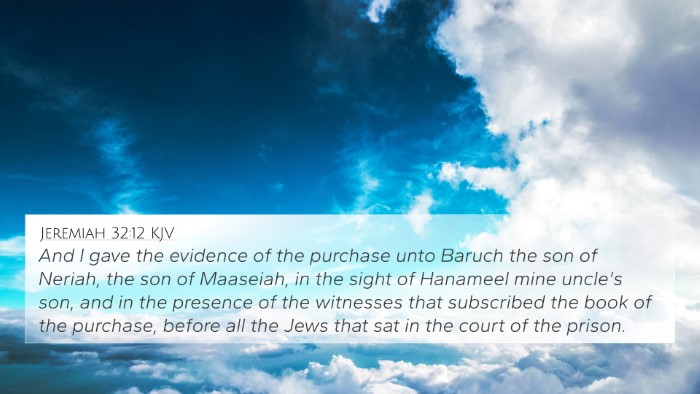Genesis 23:18 describes the transaction of Abraham purchasing the Cave of Machpelah from Ephron the Hittite, establishing a family burial site. This event is significant as it marks the first piece of land owned by Abraham in the promised land of Canaan, symbolizing God's promise to him and his descendants.
Meaning and Interpretation:
The significance of this transaction can be understood through various commentaries:
- Matthew Henry: Henry highlights that this purchase is a fulfillment of God's promise to Abraham regarding the land. Abraham's insistence on buying land instead of accepting it as a gift shows his faith and acknowledgment of ownership, which foreshadows his descendants' claims to the land.
- Albert Barnes: Barnes states that the transaction demonstrates Abraham's respect for proper legal procedures and his desire for a permanent resting place for his family. This act solidified Abraham’s status as a legitimate inhabitant of Canaan, thus connecting to the theme of faith in God's promises.
- Adam Clarke: Clarke points out the importance of the negotiation process, noting that it was done in the presence of witnesses. This highlights Abraham's integrity and the solemnity of making such an important purchase in a public manner.
Bible Cross-References:
This verse is connected to several other passages within the biblical narrative that enhance its understanding:
- Genesis 17:8: God promises the land of Canaan to Abraham and his descendants, making the purchase of Machpelah a claim to that promise.
- Genesis 12:7: Abraham receives God's promise to give the land to his seed; this purchase serves as a tangible step towards that fulfillment.
- Genesis 50:13: Joseph's instructions to bury Jacob in Canaan reflects the importance of Machpelah as a family burial site, reinforcing its significance across generations.
- Exodus 23:30-31: God’s assurance of driving out nations on behalf of Israel connects with the theme of land possession as seen in the purchase by Abraham.
- Leviticus 25:23: Speak of the land’s permanent ownership, resonating with the permanence of Abraham's acquisition of the Cave of Machpelah.
- Hebrews 11:9-10: Discusses Abraham's faith as he lived as a stranger in the land, amplifying the spiritual significance of owning land in Canaan.
- Acts 7:15-16: Stephen references the covenant made with Abraham, tying back to the genealogical significance of burying one's ancestors in the purchased land.
- Matthew 5:5: Quotes Jesus regarding the meek inheriting the earth, echoing themes of inheritance that relate back to Abraham's legacy in Canaan.
- Zechariah 8:7-8: Speaks of God's plan to return His people to the land, reinforcing the promise embodied in the purchase of Machpelah.
Conclusion:
Genesis 23:18 encapsulates a pivotal moment in biblical history, marking the first legal ownership of land by Abraham in Canaan. Through cross-referencing and thematic connections with other scriptures, we see how this verse embodies integral biblical themes such as divine promise, faith, and legacy.
For those exploring Bible cross-references, this passage demonstrates the significance of integrating various scriptures to deepen understanding. The Bible cross-reference guide can be a valuable tool in revealing thematic connections and helping discover related verses that enhance personal study or sermon preparation.
In summary, approaching Genesis 23:18 with comparative analysis allows one to glean rich insights into its meaning, significance, and its interrelatedness with other parts of Scripture, enriching one's understanding of the biblical narrative as a whole.
